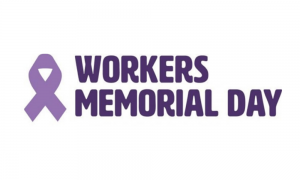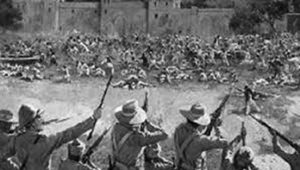In this article Aratrust details some events people can join on May Day (1 May 2021) and gives a brief history of the trade union movement.
May Day events
The London May Day Organising Committee:
“This year we are celebrating on-line again and will have messages
from trade unionists from here and around the world; we address key issues for our future like Black Lives Matter and the environment.
We will link with the Institute of Employment Rights event on May Day (Resist-Repeal–Replace) and the Marx Memorial Library virtual May Day tour.
We link with those in the arts. We will be linking with other events on the day. Our May Day will be on-line from 10.00 and on all day for you to join in.” www.londonmayday.org
10.00am-5.00pm: GLATUC (Greater London Association of Trade Union Councils) May Day open-top bus tour
An open-air bus dressed with May Day banners and posters will leave Clerkenwell Green, London EC1, and drive to different local May Day events in London
10.00am: on-line
CELEBRATE MAY DAY 2021
Join FRANCES O’GRADY TUC General Secretary;
DAVE WARD CWU GS; STEVE TURNER UNITE AGS and others.
“Join the call to remake our society, after Covid, as a fair society – with equality and social justice for all.
We celebrate what was fought for by workers’ campaigning over many years – like the NHS, housing for all, good education for all, good pensions, work for all;
We fight for Environmental Sustainability and Just Transition.
We fight for the interests of the many, against the rich and powerful.
We fight for the unity of young and old, those of all different ethnic and national backgrounds.
We fight for gender equality,
We oppose the attempts to limit our right to protest and demonstrate.
We stand with workers across the world celebrating May Day.
We salute this May Day all those workers who have kept this society going – from those in the NHS to shops; transport to food production; social care to teachers; from emergency services to essential services and so many more.
They kept our society going – not the sharp operators and contractors who sought to profit out of the crisis.”
11.00am-12.30pm: Institute of Employment Rights

https://www.ier.org.uk/events/resist-repeal-replace/
1.00pm: Marx Memorial Library & Workers School May Day Virtual Tour
https://www.marx-memorial-library.org.uk/event/310
Current issues for a ‘new fair society’
Many of the issues facing our society today, including democratic rights, racial and gender equality, equal rights for people with disabilities, working hours, secure employment, fair pay and working conditions, workplace health and safety, holiday and sick leave, pensions, the environment, health services, housing and social justice, are issues that workers and communities have organised around for centuries to defend previous successes and secure advances.
Centuries on these injustices still persist. That is why every generation owes it to previous generations to tirelessly defend the gains that they made, and owes it to future generations to defend and build on the gains of previous generations.
The birth of trade unions and the TUC
In 1349 the Ordinance of Labourers, followed by the Statute of Labourers in 1351, is widely believed to be the first English labour law fixing wages and outlawing collective bargaining.
With the increasing mechanisation of cottage industries and new manufacturing processes in the 18th century, stimulated by the enormous accumulation of capital and cheap supply of raw materials from trans-Atlantic slavery, the men women and children caught up in the Industrial Revolution formed trade unions to try and improve their working conditions and pay.
Early trade unions included a union of Devon and Somerset wood workers in 1717, and The National Society of Brushmakers can be traced back to 1747.
In 1792 miners assembled near Bristol to demand a rise of 2 shillings per week. They were apparently encouraged by the success of shoe-makers and other tradesmen.
These trade unions were met with hostility from employers and government groups and trade unionists were regularly prosecuted under various laws. In 1800 the Combination Acts made unions illegal.
However, this failed to stop the growing trade union movement. When the combination laws were repealed in 1824 unions began organising openly but were still met with hostility by employers and could be sentenced to transportation to a colony by magistrates.
The Tolpuddle Martyrs sentenced to transportation
“As the sun rose on 24th February 1834, Dorset farm labourer George Loveless set off to work, saying goodbye to his wife Betsy and their three children. They were not to meet alone again for three years, for as he left his cottage in the rural village of Tolpuddle, the 37-year-old was served with a warrant for his arrest.
Loveless and five fellow workers – his brother James, James Hammett, James Brine, Thomas Standfield and Thomas’s son John – were charged with having taken an illegal oath. But their real crime in the eyes of the establishment was to have formed a trade union to protest about their meagre pay of six shillings a week – the equivalent of 30p in today’s money and the third wage cut in as many years.” (The Tolpuddle Martyrs Museum)
https://www.tolpuddlemartyrs.org.uk/story/tuc-150th-anniversary-south-west/early-unions
William Cuffay (1788-1870) a black trade union and Chartist leader sentenced to transportation to Australia
William Cuffay, the son of a former St Kitts African slave, was born in 1788. He lived in Gillingham and was apprenticed to a tailor. He moved to London around 1819 and went on strike with other tailors in 1834, demanding a 10-hour workday from April to July and an 8-hour day during the rest of the year with pay of 6 shillings and 5 pence a day. After the unsuccessful strike he was victimised, lost his job and other employers would not employ him. In 1839 he helped to set up and lead the Metropolitan Tailors’ Charter Association.
After the victimisation, William Cuffay joined the Chartists, who were campaigning for universal suffrage, and he was elected to the national executive of the National Charter Association in 1842. Later that year he was elected as President of the London Chartists. In 1848 he was one of the organisers of the large Kennington Common Chartist rally for universal suffrage.
Cuffay was denounced by a government spy, arrested and accused of “conspiring to levy war” against Queen Victoria. He was convicted and sentenced to 21 years penal transportation to Tasmania. Three years later he was pardoned but decided to stay in Tasmania, working as a tailor and being involved in local politics until he passed away in 1870.
Some readers of this article may recall that about 10 years ago Aratrust’s Arts4REAL performing arts group staged a play on William Cuffay’s trial. It was performed at the Acton Trade Union Club in West London and supported by Ealing TUC!
1860: Formation of the London Trades Council – forerunner of GLATUC (The Greater London Association of Trade Union Councils)
“The Greater London Association of Trade Union Councils (GLATUC) is the inheritor of a long and proud history.
It is the successor body to the London Trades Council. The LTC was founded in 1860 as one of the first Trades Councils in the country. It was instrumental with other Trades Councils – particularly Manchester and Salford – in setting up the TUC. It had a prominent role in the various working class struggles in the capital and nationally. In the 1860s it assisted in the set-up of the International Working Men’s Association (the “First International”). It became closely involved in the struggles of New Unionism – the women match workers, in the docks, gas workers. It took a leading role in opposing the use of troops in industrial disputes.”
1868: first meeting of the Trades Union Congress (TUC), at the Mechanics’ Institute in Manchester.
In 1868, Manchester, Salford and London Trades Councils and trade unionists from all over the UK were involved in setting up the TUC. The first meeting of the TUC Trades Union Congress took place at the Mechanics’ Institute in Manchester.
This first Congress passed a resolution “that it is highly desirable that the trades of the United Kingdom should hold an annual congress, for the purpose of bringing the trades into closer alliance, and to take action in all Parliamentary matters pertaining to the general interests of the working classes“.
https://www.tuc.org.uk/about-the-tuc/our-history
May Day – the origins
According to researchers, May Day has been associated with Spring Time or the beginning of Summer going back to Roman Empire days at least and having different connotations in different parts of Europe over the centuries.
In 1889, the 2nd International chose May Day as the date for International Workers’ Day, following the 1886 ‘Haymarket Affair’ in Chicago when at least 11 civilians and police officers were killed and many more injured after an unknown person threw a dynamite bomb and police fired on workers in Haymarket Square who were holding a peaceful rally in support of an 8-hour working day.
Local Trade Union Councils (or Trades Councils)
Local TUCs are composed of elected delegates from trade unions operating in their areas. They bring together different trade unions to work together with the community on a wide range of trade union and community issues including: workers taking action to defend or improve their working conditions and pay / opposing racism / opposing fascism / protecting the environment / improving housing / improving health, cultural and educational provision.
More information from: https://www.tuc.org.uk/trades-councils-who-we-are-and-what-we-do
May Day greetings from Ealing TUC
“Solidarity Greetings to Aratrust from Ealing Trades Union Council on International Workers Day. It is brilliant that all around the world people are celebrating May Day and raising the banner of working class unity.”
May Day greetings from UNITE Community Brent branch
“Unite Community Brent branch would like to extend solidarity to Aratrust for their marking of this year’s May Day. It is great to see them getting behind this important day and to see the support they give the trade union and workers’ movement.”
May Day greetings from Hillingdon TUC
May Day greetings from Harrow TUC
“May Day greetings from Harrow TUC. We once again mark the historic workers’ day of struggle and solidarity held each year on the 1st May. From its founding by the workers of Chicago in 1889 it has passed through the ages as a moving expression of our past, present and future struggles. This year with the world ravaged by the pandemic and with the working class and the global poor the real victims of the disease and its economic consequences it has exposed the brutal and divisive nature of capitalism for all to see.
From our proudly reformed Harrow TUC we send fraternal May Day greetings to all the victims of this current onslaught of capital and all those who stand in struggle for socialism and freedom from oppression. Never more prescient are the immortal words of Karl Marx. ‘Workers of the world unite, you have nothing to lose but your chains.’”
May Day greetings from Kilburn Unemployed Workers Group
“May Day greetings from the KUWG to all the workers, poor and oppressed in every land on this, their international day of Solidarity since it first began in 1889 to commemorate the Haymarket affair in Chicago and the Haymarket Martyrs who were hanged by a biased jury hand-picked for the task. In 1890, over 300,000 people protested at a May Day rally in London in solidarity. In 2020 Boris Johnson changed the bank holiday to May 8 to celebrate instead the 75th anniversary of the end of the Second World War in an attempt to marginalise the significance of the International Workers’ Day.
The KUWG was set up on the 28 July 2009 at the initiative of Sertuc, the South East Region of the Trade Union Congress in London after the Financial Crash to help unemployed people, as rhetoric against the unemployed (shirkers) was ratcheted up and we are people on JSA, ESA, DLA/PIP and pensioners and people kicked off benefits (sanctioned). We focus primarily on combating benefits injustices locally through advocacy in individuals’ benefit claims, and demonstrations that emphasise that there is hope when we come together. We are more angry than frightened.
Cuts to CAB and other advice centres meant that we needed to set up our own ways of supporting people in getting our RIGHTFUL benefits, and campaigning for changes, with various other groups like, Crossroads Women’s Centre in Kentish Town, Fuel Poverty Action, Housing groups, Mental Health Resistance Network and more that pop up. We have a weekly Zoom meeting now on Tuesdays and expect to be getting back to a Thursday 3pm face to face meeting as well as continuing the Zoom Tuesday meetings to assist those who cannot come to open meetings. We always highlight how inappropriately meetings with DWP, Healthcare “Professionals”, Tribunals etc are run, and seeing if normal Natural Justice is being applied. Our motto is “Never go anywhere official alone” as a lot of problems have been caused by so-called ‘Professionals’ lying about meetings with vulnerable people like ourselves.
Traditionally we have also picketed the DWP HQ in Caxton House but have been unable to do so for over a year because of the Covid-19. We hope to resume soon, exposing the hostile environment begun by Theresa May and Therese Coffey and carried out now by Johnson. We produce leaflets and have a loud hailer and sound system to facilitate the many spoof songs we have composed to target the Tory billionaire sleazy system.” Gerry Downing, KUWG




















